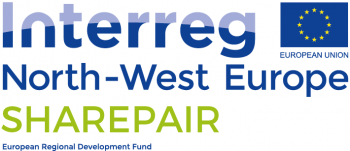
Research: ShaRepair
Digital support infrastructure for citizens in the repair economy.
Summary
Research summary
-
Project timeline: 2019 - 2023
Consumption of electrical and electronic equipment (EEE), and the resulting production of waste from electrical and electronic goods, is very high throughout North-West Europe (source: Eurostat 2016, EEE products put on the market).
A new way to tackle this waste stream and conserve precious resources is to encourage the public to make use of local repair cafes and workshops - places where people can go to learn repair skills - and to fix their personal items themselves. Here, individuals can access the advice, support and resources necessary to repair their own appliances and devices, reducing the need to purchase new, replacement products.
ShaRepair aims to support and help scale the citizen repair movement through the promotion of innovative technologies, such as computer aided design and 3D printing, for the production of spare parts and components. The project is also developing digital tools and resources, including an open-source database of 3D-printable designs.
In this project, we are aiming to reduce the amount of waste from electrical and electronic goods by encouraging people to repair their personal items rather than buying new ones.
ShaRepair is supported by the Interreg North West Europe programme as part of the European Regional Development Fund (ERDF).
Statistic
Research outputs
Research outputs
-
175 tonne reduction in waste electrical and electronic equipment in the study’s pilot cities.
-
Creation of open-access tools and resources promoting digital design and 3D printing for repair.
-
Free to attend digital design, 3D printing and repair workshops.
-
The development of business models and policy models that can be widely shared to make sure the initiative can continue after the end of the project.
Team
Research team
Collaborating with:
- Maison du développement durable – Ottignies-Louvain-la-Neuve
- Gemeente Apeldoorn
- Stad Roeselare
- The Restart Project
- Repair&Share
- Delft University of Technology
- The Manchester Metropolitan University
- National University of Ireland Galway
- Association des Consommateurs Test-Achats
- Prototyping Collective
- Statik
- KU Leuven – Katholieke Universiteit Leuven
- Repair Together
- VITO
- Maakbaar Leuven
Funding
With funding from

Interreg North-West Europe
Total budget: €7.78 million
Contact
Contact us
For general enquiries about our Circular Economy Network, you can contact its lead Prof. Craig Banks.

